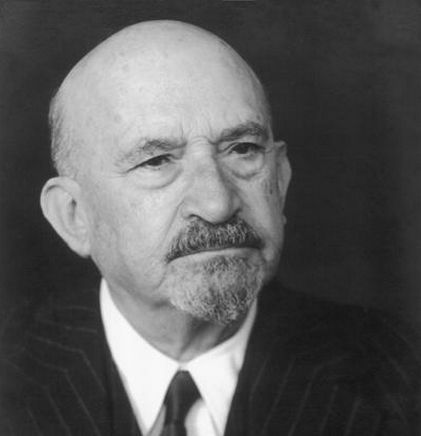
November 9, 1952
Chaim Weizmann, a leader of the Zionist movement and the first President of the State of Israel, passes away at his home in Rehovot after a year-long illness. Among his myriad of contributions to the creation of the State of Israel was his role in obtaining British consent for the 1917 Balfour Declaration, giving international legitimacy to a Jewish homeland by the League of Nations in 1922.
Born in 1874 in Motol, a small Polish township, Weizmann left home at 18 to continue his studies in Germany because of the strict quotas applied to Jews for wishing to enroll in Russian universities. While studying biochemistry in Berlin, he joined a circle of Zionist intellectuals influenced by both Ahad Ha’am’s vision of cultural and spiritual Zionism, and later, the political and territorial concepts promoted by Theodor Herzl’s writings.
Weizmann soon clashed with Herzl over Herzl’s focus on external diplomacy while Weizmann favored the development of social, cultural, and educational institutions in Israel in order to stimulate state building. Later, Weizmann would embrace the need for external diplomacy to secure great power backing for a Jewish homeland and state.
In 1904, Weizmann moved from Geneva to England where he eventually became a lecturer at Manchester University. It was in England, especially in the years during and after World War I, that Weizmann, after developing a synthetic process for developing acetone which the British used in explosives, gained access to and developed relationships with members of the British government. These relationships with British leaders, including Lloyd George, Herbert Samuel, and Winston Churchill, ultimately resulted in the 1917 British statement of support for a Jewish homeland, as outlined in the Balfour Declaration. In 1922, the Declaration received international recognition and legitimacy from the League of Nations.
In 1918, he led the Zionist Commission to Palestine that reviewed the condition of Jews there after the war. As result of that visit, he wrote several detailed dispatches to British officials who used his assessments to sustain a commitment to Zionism, as opposed to most British officials in Palestine, who were opposed to the idea of a Jewish national home. In 1921, he was elected President of the World Zionist Organization and embarked on vigorous fundraising and political campaign to help build and create the State of Israel. In May 1948 Weizmann was elected Israel’s first President and was inaugurated on February 16, 1949.
Addressing the Knesset on the day of Weizmann’s passing, Prime Minister David Ben-Gurion remarked, despite severe disagreements with Weizmann in the previous decade over political tactics and focus, “I will not attempt to describe fully the achievements and the personality of the Chosen One of the Nation, to whom there has not been an equal since Herzl…for Weizmann carried two crowns on his head — a crown of Statemanship and a crown of Learning. He was at once the first of our Nation and among the greatest in science.” (“‘He Wore Crowns of Learning and Statesmanship’– Ben Gurion.” The Jerusalem Post, November 10, 1952. ProQuest. Web. 24 Oct. 2013.)
For more about Weizmann: Click Here
For the New York Times obituary of Weizmann: Click Here
